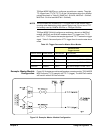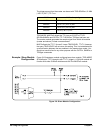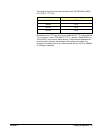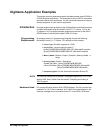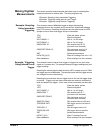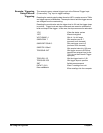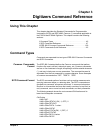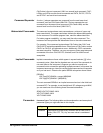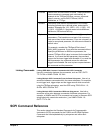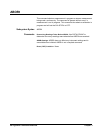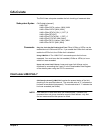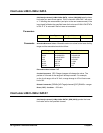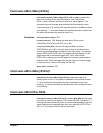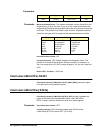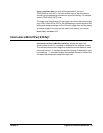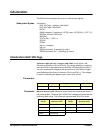
Digitizers Command Reference 47Chapter 3
Linking Commands Linking IEEE 488.2 Common Commands with SCPI Commands.
Use only a semicolon between the commands, such as *RST;OUTP:
TTLT4 ON or SAMP:COUNt 25;*WAI.
Linking Multiple SCPI Commands From the Same Subsystem. Use only a
semicolon between commands within the same subsystem. For example,
to set trigger level, trigger slope and the trigger source which are all set
using the TRIGger subsystem, send the SCPI string TRIG:LEVel 1.5;
SLOPe NEG; SOURce EXT.
Linking Multiple SCPI Commands of Different Subsystems. Use both a
semicolon and a colon between commands of different subsystems. For
example, a SAMPle and OUTPut command can be sent in the same SCPI
string linked with a semicolon and colon (;:) as SAMP:COUNt 10;:
OUTP:TTLT4 ON
SCPI Command Reference
This section describes the Standard Commands for Programmable
Instruments (SCPI) commands for the E1563A and E1564A Digitizers.
Commands are listed alphabetically by subsystem and within each
subsystem.
Discrete Selects from a finite number of values. These parameters
use mnemonics to represent each valid setting. An
example is the TRIGger:SOURce <source> command
where <source> can be BUS, EXTernal, HOLD,
IMMediate, or TTLTrgn.
Numeric Commonly used decimal representations of numbers
including optional signs, decimal points, and scientific
notation. Examples are 123, 123E2, -123, -1.23E2, .123,
1.23E-2, 1.23000E-01. Special cases include MINimum,
MAXimum, DEFault and INFinity.
Optional Parameters shown within square brackets ([ ]) are optional
parameters. (The brackets are not part of the command
and are not sent to the instrument.) If you do not specify a
value for an optional parameter, the instrument chooses a
default value.
For example, consider the TRIGger:LEVel<chan>?
[MIN | MAX] command. If you send the command without
specifying a MINimum or MAXimum parameter, the
present TRIGger:LEVel value is returned for the specified
channel. If you send the MIN parameter, the command
returns the minimum trigger level allowable. If you send the
MAX parameter, the command returns the maximum
trigger level allowable. Be sure to place a space between
the command and the parameter.



